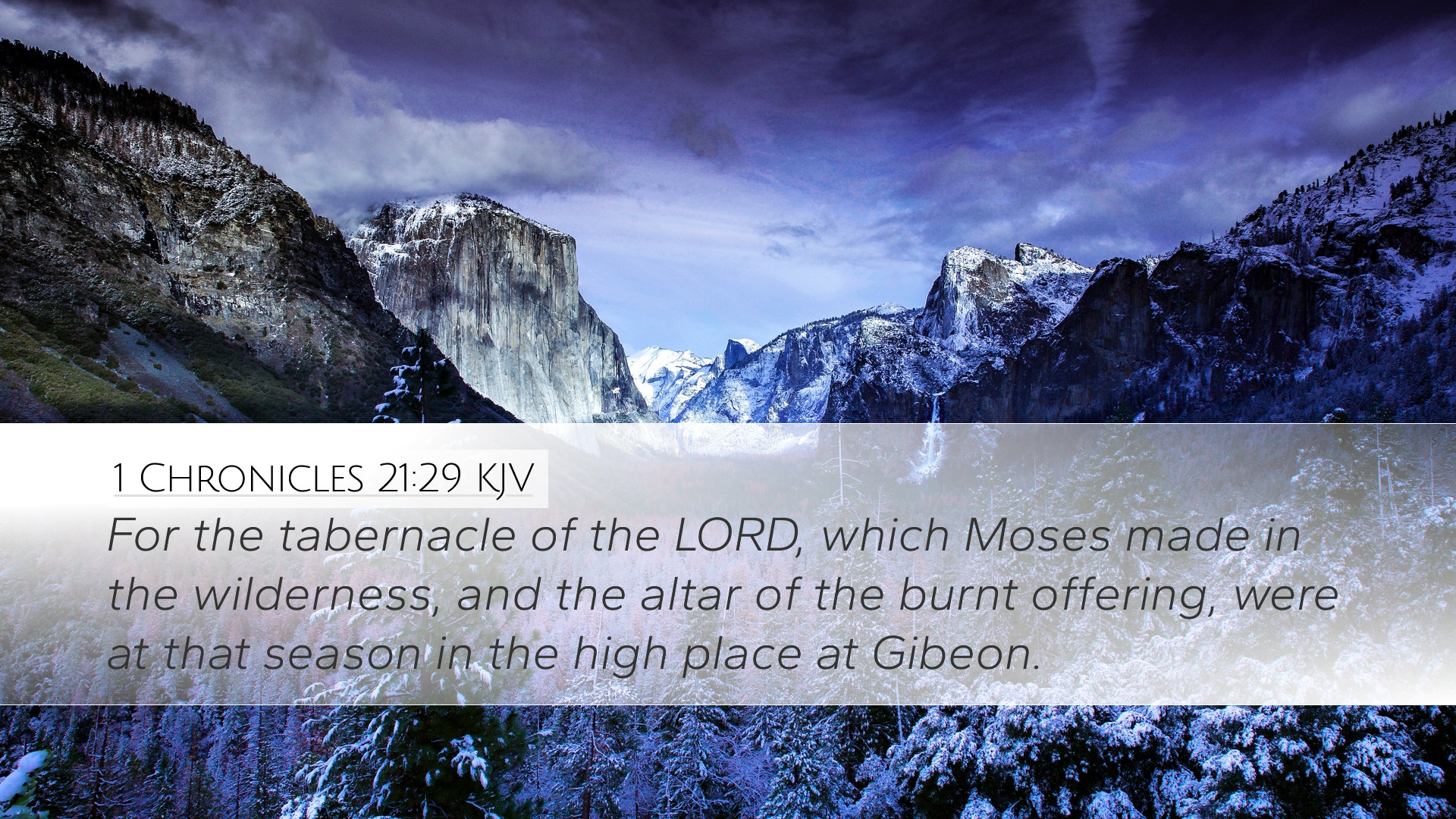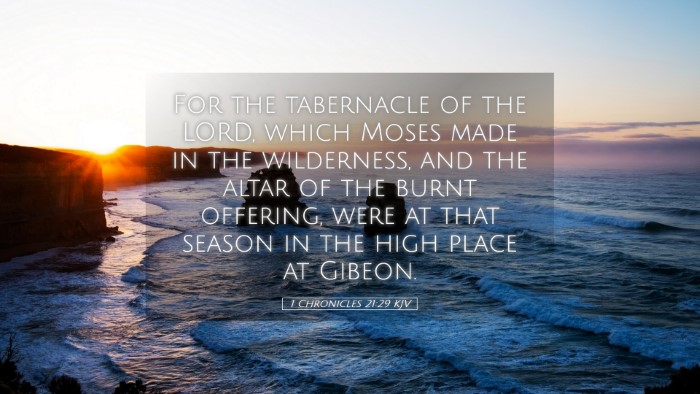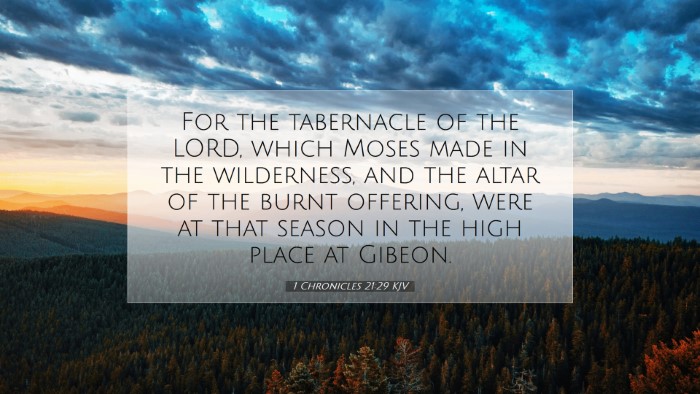Commentary on 1 Chronicles 21:29
Verse Context: 1 Chronicles 21:29 states: “For the tabernacle of the LORD, which Moses made in the wilderness, and the altar of the burnt offering, were at that season in the high place at Gibeon.” This verse captures a critical moment in Israel's religious history, indicating the location of the worship site before the temple's construction in Jerusalem.
Historical Significance
Matthew Henry emphasizes that this verse highlights the transitional phase in Israel's worship practices, illustrating how the tabernacle and the altar were still in Gibeon. The historical context of this placement is vital, as it was a part of Israel's pilgrimage of faith, where they sought to honor God amidst their journey toward a permanent dwelling place for His name.
According to Albert Barnes, the ‘high place’ at Gibeon served as an important worship site during this period. David's establishment of the altar here signified the acknowledgment of God’s presence and favor, reflecting the people’s desire for a genuine communion with God. This act of worship was crucial, especially in a time when Israel was consolidating its identity as a unified nation under God.
Adam Clarke further elaborates on the significance of Gibeon, noting that it was a well-known city among the Israelites, associated with the Gibeonites. This site was recognized for its historical and spiritual importance, bridging the past experiences of Israel with their collective worship actions. Clarke suggests that the altar here was not merely functional; it was emblematic of the nation's dependence on divine mercy and provision.
Theological Implications
This verse and its surrounding context provide profound theological implications regarding the nature of worship and the presence of the Lord. Henry points out that the tabernacle represents God's dwelling among His people, which is a recurring theme throughout the Scriptures. The existence of the altar at Gibeon reminds believers that true worship must have a reference point in God's covenant faithfulness.
Albert Barnes highlights the importance of approaching God with reverence. The altar signifies not only sacrifice but also the acknowledgment of one’s need for atonement. This prefigures the ultimate sacrifice of Christ, who would fulfill the requirements of the law provisions symbolized by such sacrificial acts.
Adam Clarke argues that the theological significance of the location and use of the altar is critical. It reinforces the idea that worship is tied not only to the location but also to the heart’s posture before God. The altar signifies a place of encounter where God and man meet, indicating that worship necessitates an awareness of sin and a desire for reconciliation with the Holy One.
Pastoral Applications
In light of this passage, pastors might encourage their congregations to consider the place of worship in their lives. Matthew Henry observes that just as the Israelites had a physical place for worship, modern believers must find places in their lives that remind them of God’s mercy and grace. This could be through regular attendance at church, personal devotions, or participation in community worship activities.
Albert Barnes advocates for the necessity of corporate worship and the communion of believers as essential to a strong spiritual life. This passage serves to remind the church community that their collective worship is a reflection of both shared faith and individual devotion. It is a call to gather in recognized places of worship to engage collectively in acts of adoration, thanksgiving, and repentance.
Adam Clarke stresses the need for authenticity in worship. When reflecting on their practices, believers should ask whether they are engaging sincerely with God. The passage reminds them that the location of worship is not as significant as the attitude of the heart. Cultivating a spirit of humility and contrition before God can transform any setting into a holy space where divine interactions can take place.
Conclusion
1 Chronicles 21:29 serves as a poignant reminder of the importance of worship and the spaces that facilitate encounters with God. By merging historical context with theological reflection, pastors, students, and scholars alike can glean insights that deepen their understanding of worship's place in the life of the believer. Gathering elements from the commentaries of Matthew Henry, Albert Barnes, and Adam Clarke equips us to appreciate the ongoing narrative of God's presence among His people and challenges us to engage meaningfully in our worship practices.


